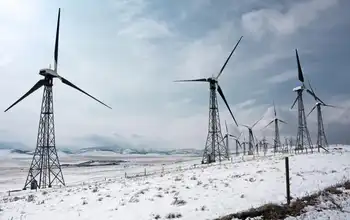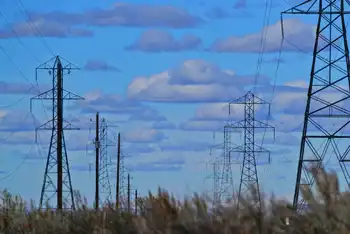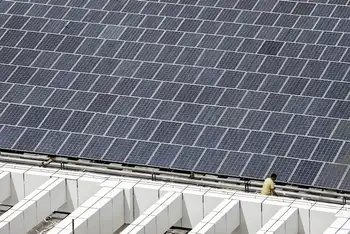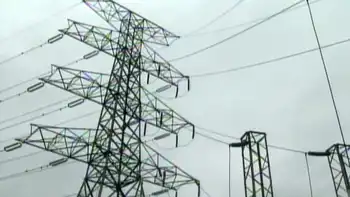National Grid proposes New York pilot program
By Business Wire
Electrical Testing & Commissioning of Power Systems
Our customized live online or in‑person group training can be delivered to your staff at your location.

- Live Online
- 12 hours Instructor-led
- Group Training Available
The companyÂ’s plan calls for a test site of 39,400 homes and businesses in the Syracuse area that will use new, state-of-the-art equipment to give customers information about their energy use and tools to reduce their carbon footprint and manage their energy costs.
A smart grid is a network for electricity transmission and distribution systems that uses two-way, state-of-the-art communications, advanced sensors, and specialized computers to improve the efficiency, reliability and safety of electricity delivery and use. Smart grids also provide environmental benefits by helping to reduce energy use during peak hours and accommodate distributed generation facilities (such as solar energy) to the grid. The company recently submitted its plan to the New York Public Service Commission (PSC).
“The backbone of the new, clean energy economy is going to be a reliable smart grid system that will allow customers to better manage their energy use and costs and be compatible with new technology such as home solar energy generators and plug-in hybrid vehicles,” said Tom King, president of National Grid in the U.S. “National Grid is committed to improving its infrastructure to deliver excellent customer service and reliability. This comprehensive smart grid demonstration proposal will test this new system to ensure it will meet the needs of our customers and new clean energy technologies.”
King added that the proposal, which is subject to PSC approval, aligns with the recently adopted New York State Energy Plan that calls for reducing state electricity use to 15 percent below forecast levels by 2015 and is responsive to Gov. David PatersonÂ’s call for the development of a clean energy economy is his recent state-of-the-state address.
“National Grid believes that the New York State Energy Plan signals a much needed shift from the reliance on a model in which electricity is generated and controlled centrally,” King said. “The new model is one in which energy is integrated at a local level taking advantage of renewable energy sources and reducing overall usage,” said King.
The project, if approved, will have significant near and long-term benefits to customers in the pilot area and to the overall economy of upstate New York.
“We expect this pilot to create a number of jobs,” King said. “We estimate that hundreds of local jobs could be created by this project. All of these jobs will be part of the new energy economy.”
According to the company, the proposed site was chosen because of the Syracuse areaÂ’s diverse populations of residential and commercial customers, offering the opportunity to test Smart Grid technology with a variety of customers.
In December, National Grid was selected as a sub-applicant in a recent Department of Energy (DOE) award for a three-year project that will demonstrate advanced energy storage in several locations, including Syracuse. This funding will be used in the Syracuse area to install two energy storage units at one of its substations, and the third at Syracuse University to demonstrate and study the importance of energy storage for managing increased use of renewable generation and the improved reliability of the distribution system. These testing sites are located in the footprint of the proposed program.
A key objective of the proposal is to provide the backbone for potential clean distributed generation and energy storage resources in order to determine how these resources can be safely and reliably incorporated. Syracuse has a number of existing and potential distributed generation project sites, including a large solar project at SUNY Environmental Sciences and Forestry Center.
National GridÂ’s Smart Technology Center (STC) in Liverpool, New York will be a major part of the program. The STC is a comprehensive state-of-the-art outdoor laboratory and training facility that tests and evaluates smart grid technologies to ensure safe, secure and reliable equipment performance prior to deployment. In addition to testing smart grid equipment for the proposed Syracuse area site, the lab tests equipment for other sites within National GridÂ’s U.S. service territory.
“Syracuse has the right resources and the right customer base for this type of project,” King said. “Our proposal of this project in central New York is part of our commitment to upstate New York.”
Smart grid technology will provide customers improved energy use information, automation, and savings as well as an unprecedented amount of choice and control over how they use energy. Implementing smart grid technology also will enhance the reliability of the electric system. National Grid hopes to gain valuable information from the programs that it can use in the future to develop a smart grid on a wider scale.
Under the program, all customers will receive a ‘smart’ meter, and some customers will have the option to have additional equipment installed in their homes that includes special programmable thermostats and other devices that provide data and support energy management.
If approved, the program will be implemented over a 2-3 year period.
Eventually, customers will be able to purchase ‘smart’ appliances that will connect to the smart grid and start or stop when programmed to do so. Participating customers will be asked how they prefer to receive their energy information – via text message or from the Internet – and arrangements will be made for them to view and monitor energy consumption on a real-time basis, providing information that allows customers to use less energy during peak periods when electricity use is at its highest.
Additionally, customers will have the option to receive a new rate plan that allows them to save money during periods when electricity use is at its highest across the region.











